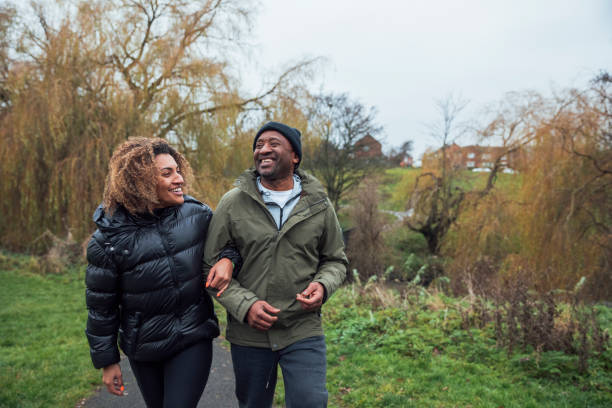Mental Health Awareness Week: the benefits of access to nature
How can nature help improve and support our mental health? Three experts: an ecologist, a mental health nursing lecturer and a psychotherapist, share their insights.

In 2023, the BES hosted its inaugural People, Policy & Planet event to discuss the topical question of how we can balance conservation and restoration of habitat with people’s need to access nature. A strong theme at the event was the wellbeing benefits that access to nature provides, so in this blog we highlight what we learnt from our speakers about how nature can improve mental health.
There is now a large body of scientific literature supporting the positive effects of nature on wellbeing, from depression and anxiety to dementia. According to the People and Nature survey by Natural England, 84% of people agreed that being connected to nature makes them happy and during the Pandemic, 41% agreed that nature was more important than ever for their wellbeing.
Immersion in nature
Our first speaker at the event, Sarah Howes, is a lecturer in mental health nursing at the University of Plymouth. Her recent study on supporting restoration from stress within mental health nursing found that immersion in nature led to a range of benefits. These included an increase in positive emotions displayed and decrease in negative emotions, an enhanced sense of belonging, and an interest in caring for the natural world.
Sarah said that investment in nature is an investment for the NHS. It is important to have access to green space as part of both staying and getting well. In fact, hospital patients recover faster when they have access or a view of green space, but green space around hospitals is disappearing.
As many are aware, the COVID-19 pandemic highlighted some of the benefits of contact with nature, but it also raised awareness of the inequalities of access and the value of easily accessible urban green and blue spaces. Green spaces were found to mitigate racial disparity of health, but poorer neighbourhoods generally have less access to quality green space; national parks and forests are used only by the richest third of the country. However blue space is an exception to this trend – people from all walks of life use beaches and the sea.
Sarah went on to highlight some of the barriers to everyone being able to access the mental health benefits that nature provides. These include wealth (e.g. the costs of trains, access to reserves, parking, outdoor gear), ethnicity (People of Colour not feeling welcome in nature and experiencing hostility) and gender (e.g. women/trans people feeling vulnerable in unpopulated spaces).
Reclaiming a sense of belonging
Another speaker at the event was Beth Collier, a nature-allied psychotherapist and founder of Wild in the City, a non-profit that supports People of Colour to explore their human relationships and their connection with the natural world.
Beth tells us that nature connection makes sense as a form of psychotherapy – an ideal mother (Earth) can offer a sense of security and a non-judgemental relationship. Wild in the City uses natural history teaching groups exploring different habitats, ecosystems and the symbiosis of life, as a way to create a relationship with nature. Wild in City envisions a world where people feel more comfortable and safe exploring nature.
Beth spoke about some of the reasons for the racial disparity in access to nature, including emotional and psychological barriers, about who nature is and is not for, and experiencing racism and hostility in the countryside.
There are also generational messages passed down in some communities, for example, a historical narrative that time spent in the great outdoors is a white privilege. 98.2% of People of Colour live in cities and this has created an urban identity, taking away any sense of “rural belonging”. Disruption of that connection to nature has left behind trauma, which is why Wild in the City is working to re-establish oral histories of humans and nature, reclaiming a feeling of belonging in nature.
Connection through action
Dr Michael Pocock of the UK Centre for Ecology and Hydrology talked about citizen science. Not only is volunteer-collected biodiversity data extremely valuable for environmental monitoring, it also benefits those who partake in it by promoting nature connectedness and wellbeing.
Michael explained that while it’s been found that 120 minutes spent in nature each week is associated with good health and wellbeing, the quality of that time is crucial – nature connection does not just mean nature contact – what we do in nature matters.
Michael and colleagues studied the impact of nature-based citizen science on wellbeing and nature connectedness. In a randomised controlled trial, people were assigned certain activities to do for 10 minutes a day over a week: a citizen science activity, an exercise in noting down good things they noticed in nature, or both.
Both citizen science and nature noticing activities improved people’s pro-nature feelings, mood and wellbeing, and the combination of citizen science and the nature noticing activity made people feel most connected to nature.
Like what we stand for?
Support our mission and help develop the next generation of ecologists by donating to the British Ecological Society.